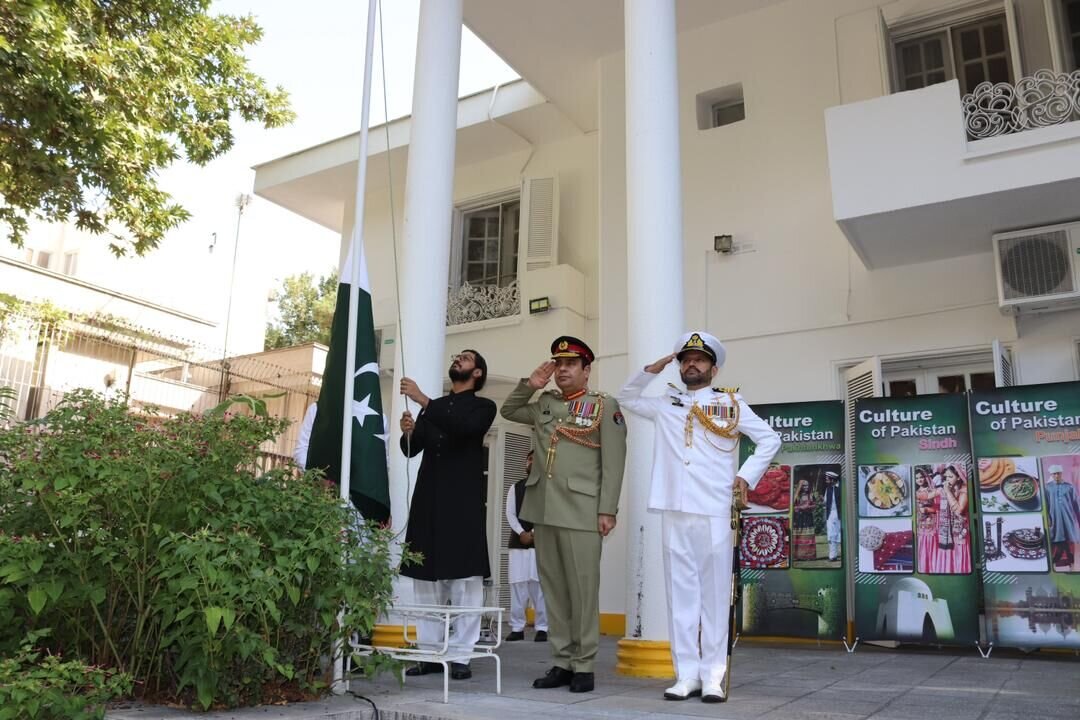Iran, Pakistan expanding bilateral relations: envoy

TEHRAN- During the anniversary ceremony commemorating Pakistan's independence, the Pakistani ambassador in Tehran underscored the optimistic prospects for the relationship between Pakistan and the Islamic Republic of Iran.
The formal observance of Pakistan's seventy-eighth independence anniversary was held on Wednesday at the Pakistan embassy in Tehran. Attendees included members of the Pakistani community residing in Iran and officials from the Pakistan Embassy.
The event commenced with the playing of Pakistan's national anthem, followed by Ahmad Shami, the charge d'affaires of the Pakistan embassy, who raised the national flag.
Subsequently, messages from both the Pakistani president and prime minister were conveyed. In his address, the charge d'affaires highlighted the significance of the day in history and paid tribute to Muhammad Ali Jinnah, Quaid-e-Azam as the founder of their nation, Allama Iqbal, the national Pakistani Poet and other prominent leaders who were instrumental in the movement for Pakistan's independence and dedicated their lives to establishing a sovereign nation for Muslims.
Ahmad Shami extended his congratulations to the Pakistani diaspora on the occasion of Pakistan's Independence Day, urging them to contribute to their homeland with unwavering commitment.
During the event, the ambassador of Pakistan emphasized the strong ties between Pakistan and Iran, which are founded on shared historical, cultural, and religious links. The partnership between the two nations is poised for further enhancement, driven by the dedication of their respective leaders.
August 14, 1947, is celebrated as Pakistan's Independence Day, marking the nation's emergence from British colonial rule under the guidance of Muhammad Ali Jinnah, revered as the Quaid-e-Azam. On this significant day, Muslims from both the western and eastern parts of India united to establish Pakistan. The western region was designated as the Federal Republic of Pakistan, while the eastern region became known as East Pakistan, which eventually evolved into Bangladesh.
The formation of Pakistan was intended to create a homeland for Muslims, enabling them to practice their values and Islamic traditions freely.
A significant aspect of the August 14 festivities involves honoring the legacies of Quaid-e-Azam, Muhammad Ali Jinnah, and Allama Muhammad Iqbal, the esteemed poet who played a crucial role in the struggle for independence.
Leave a Comment